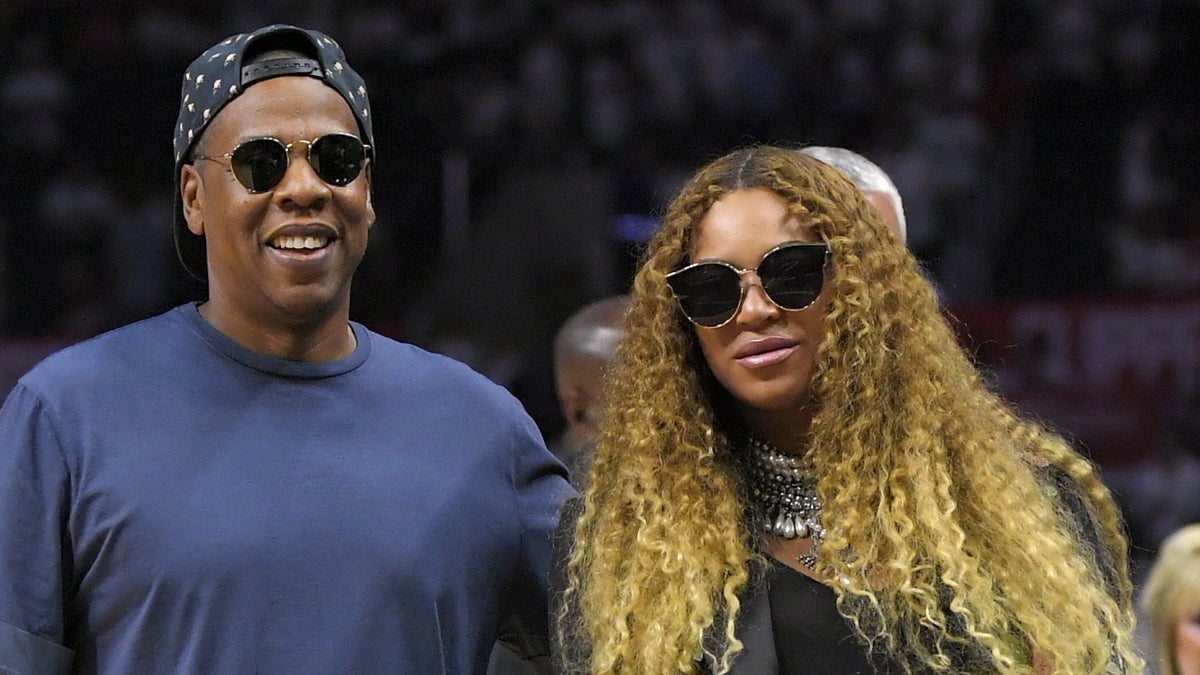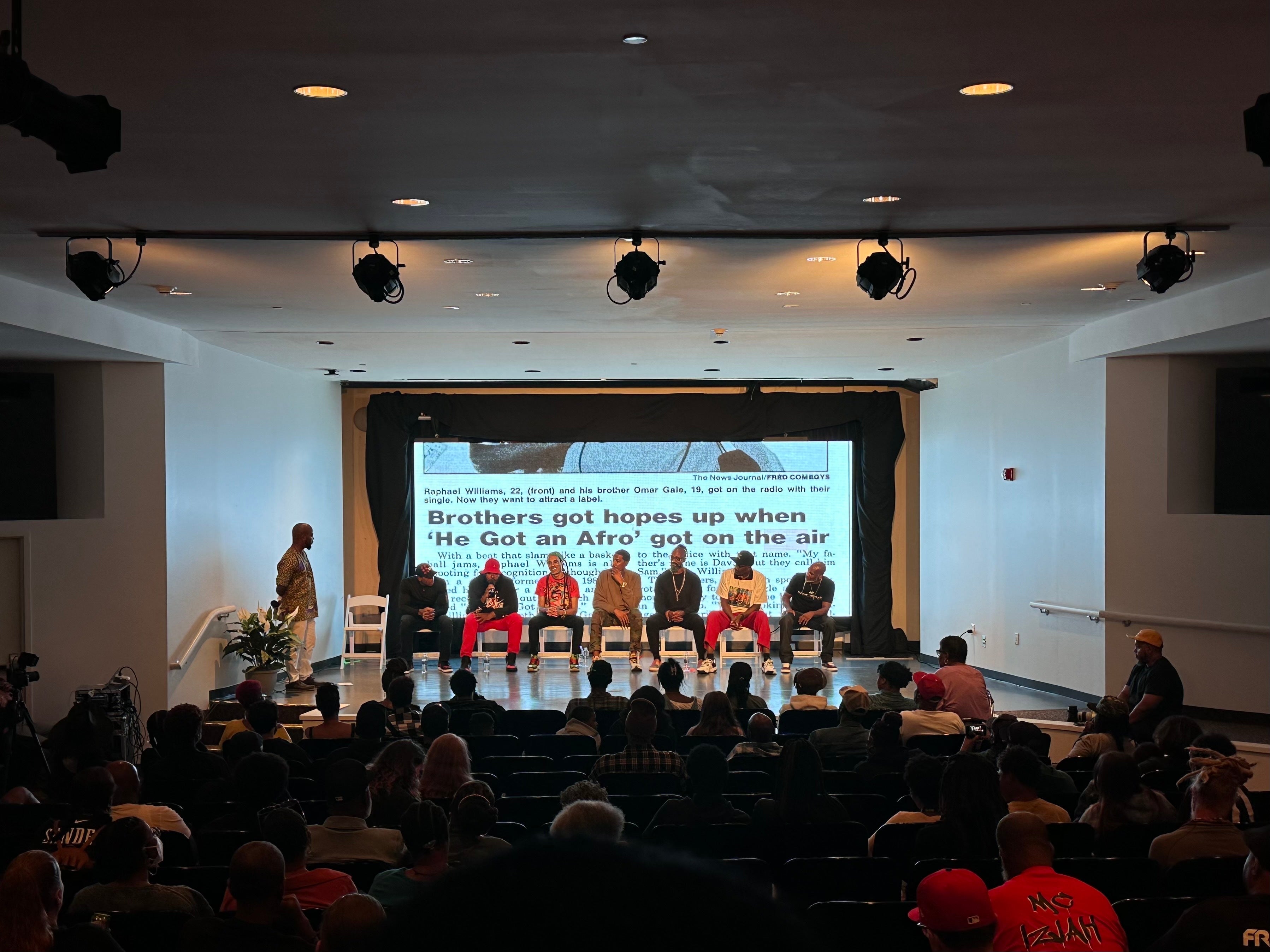In vulnerable and brutally honest ‘4:44,’ Jay-Z’s unexpected challenge to black men

ay Z, left, and Beyoncé. (AP Photo/Mark J. Terrill, file)
In hip-hop, ego is the main ingredient in some of the best songs of all time. You’d be hard-pressed to find an emcee who doesn’t think he or she is the best for no other reason than they said so. What other genre of music is so attached to the idea of battling for king or queen of the microphone?
But in the real world, ego obsession is neither very useful nor entertaining. It can cost you relationships, family, community, opportunities, and even freedom, all because you listened to the wrong voice in your head.
This theme dominates Jay-Z’s latest album, “4:44,” which is still lighting up social media a few weeks after its release. It’s a deviation from the ego-driven violence and misogyny often associated with popular hip-hop. No one saw it coming — a hip-hop album about growth, with topics such as financial literacy and unity, from a 47-year-old’s perspective, challenging the concept of hip-hop as a young person’s game. And not from just any rapper. This was Jay-Z, arguably the best rapper alive.
But the album’s greatest triumph is encouraging black men to drop their guard, be vulnerable, and explore their feelings. There’s a reason we can’t stop talking about it and why I’ve played it over and over again. Jay has forced the door open on a conversation we almost never have.
In an interview with iHeartmedia, Jay referred to the album as a “conversation in a place of vulnerability and honesty.” Nowhere on the album is this more clear than on the title track, “4:44,” where he apologizes to his wife, Beyoncé, for his infidelity — which inspired her 2016 groundbreaking Grammy and Peabody Award-winning album, “Lemonade” — and contemplates losing the respect of his children because of it.
Jay dismantles himself, and exposes his flaws.
Like the men before me, I cut off my nose to spite my faceI never wanted another woman to knowSomething about me that you didn’t knowI promised, I cried, I couldn’t hold
In the days following the album’s release, Jay-Z dropped a video footnote for the song, in which he gathered influential men of color to share their perspectives on relationships. Will Smith, Mahershala Ali, Michael B. Jordan, and Meek Mill were among the men who, along with Jay, gave their take on the struggles of commitment and intimacy.
Meek Mill, who grew up in North Philadelphia, where toughness is often a matter of survival, said he never learned how to treat “someone else.”
“The only person you know to treat good is your mom,” he said. “My dad was there, my sister. The neighborhood was a cutthroat neighborhood. People killing, all types of stuff. Cops sending people to jail for no reason. You do for yourself before you do for anybody. As time went by I had to learn how to care for somebody as much as myself.”
Jay said his relationship with Beyoncé wasn’t initially built on “the 100 percent truth,” and that they had to start over to make things right.
Despite going from selling crack to becoming the most successful rapper of all time, once having access to a sitting president, he said rebuilding his relationship with his wife is his life’s greatest challenge.
“Nothing’s harder than this,” he said. “By far, I am telling you. This is the hardest thing I’ve ever done. Most people, humans, us, are not willing to put themselves through that. Most people give up.”
His raw revelations were not lost on me. Because hip-hop is such a male-dominated, egocentric artform, where rappers brag about being virtually invincible and irresistible to women, I felt relieved to hear the best of them admit to being human in such a personal way. And it’s freed me — challenged me — to look inward at my 35-year-old, still-single self.
Past mistakes with women I cared about do haunt me from time to time. I wish I could say it was because I’m a complicated person, but the truth is I was selfish. And until now, no one has really challenged me to think about it beyond “dating is hard.”
Moments like these remind me of the power of hip-hop as a brutally honest artform and, from the right person, it can be the right voice in your head, inspiring introspection that can lead to significant change. If the most successful emcee of all time, who is married to Beyoncé — the next biggest pop star since Michael Jackson — admits that he is still figuring out his relationship at almost 50 years old, that says something: love, for oneself and others, is hard work.
“4:44” calls on black men and women to talk, work through it, attack issues that have plagued black families for centuries, and enlighten each other in ways that are beneficial to themselves, their children, and to the black community as a whole.
Jay-Z, the artist, is comfortable enough to challenge almost permanent tropes in hip-hop. Jay-Z, the man, is secure enough to set aside ego and expose his own mistakes and vulnerabilities. “4:44” deserves a celebrated space in popular culture. It’s only one album, but I hope one with a long-lasting influence on mending old wounds. As he said on the album’s first song, “Kill Jay-Z“:
We know the pain is real, but you can’t heal what you never reveal.
—
Darryl C. Murphy is a journalist based in Philadelphia, currently focusing on local education.
WHYY is your source for fact-based, in-depth journalism and information. As a nonprofit organization, we rely on financial support from readers like you. Please give today.





